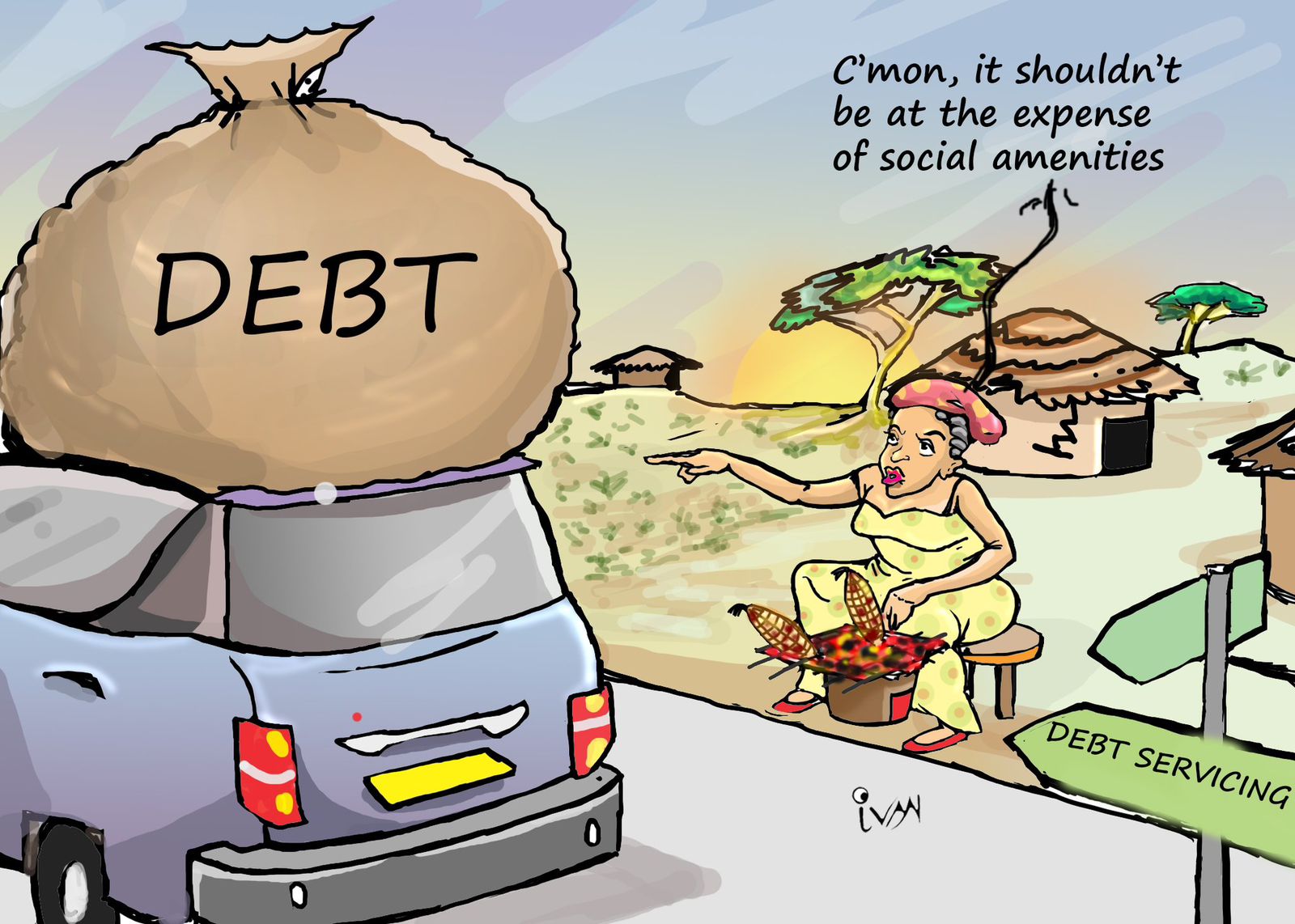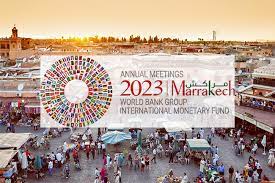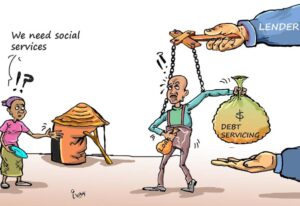
Fiscal Justice and Women’s Rights: Why Austerity Must End!
As key global actors in the international financial system converge in Marrakech this week, for the International Monetary Fund (IMF) and World Bank Group’s Annual Meetings, front and centre are demands to end austerity in the midst of the poly-crises that have encumbered the globe. Why are we calling for an end to austerity and what have women’s rights got to do with it?

The 2023 Annual Meetings of the World Bank Group and the International Monetary Fund (IMF). Source: International Monetary Fund (IMF).
The COVID-19 pandemic drove an estimated 39 million Africans into extreme poverty, thereby sharply accelerating a trend that was already on the rise. Further, many African countries are struggling to mobilise development finance and are facing a sovereign debt crisis where they spend more on repaying debts than development. According to the IMF, the average debt ratio in sub-Saharan Africa alone has almost doubled in just a decade – from 30% of GDP at the end of 2013 to almost 60% of GDP by end-2022. For example, debt servicing in African countries is almost three times higher than education spending and accounts for 51% of all tax revenue. In recent years, repaying this debt has also become much costlier due to rocketing rates of inflation and global interest rates, leaving many countries in economic turmoil.
The Gendered Impact of Austerity
International Financial Institutions (IFIs) like the IMF and the World Bank have continually prioritised debt repayments as a condition of the loans they provide. Therefore, to address the prevailing debt burden and reduce the fiscal deficit, African governments are implementing austerity measures, at the expense of investment in vital public services. Austerity measures (popularly described as ‘fiscal consolidation measures’), are often touted as a means of controlling government spending and restoring economic stability. However, they have hugely gendered impacts that impede the realisation of women’s and girls’ rights.
The most common austerity policies manifesting in Africa are characterized primarily by rapid and significant cuts in government spending on areas such as health, education, and social protection. It is estimated that 43 African countries will cut expenditures by $183 billion cumulatively between 2022 to 2026, and continue to spend 22 times more on debt servicing than social protection. Women and girls disproportionately rely on public services and social protection measures due to long-standing gender inequalities and are often the “shock absorbers” when such services are cut, thereby immensely adding to their existing unpaid care work. This is further compounded by the increased push from IFIs to privatise essential public services as a condition of their lending. As women fulfill the lion’s share of unpaid care work, this leaves them unable to secure paid work which means that market substitutes for healthcare, education and other key services are unaffordable.
Often, a further condition of IMF and World Bank loans can include the adoption of regressive, but easier to implement, taxes such as Value Added Tax (VAT) on basic goods and services, making it difficult for women to balance their respective household budgets and needs. Other examples of IFI loan conditionalities that adversely impact women include cutting the public wage bill. Women are overly represented in public sector jobs and such a measure limits their ability to secure paid decent, further impoverishing them.

Image source: African Forum and Network on Debt and Development (AFRODAD)
Marrakech and Beyond: A Call to End Austerity
The policies that deliver the undeniable harm caused by fiscal consolidation can no longer be perceived nor prescribed as the ‘most ideal’ economic options as they have been for years now.
It’s time to reconsider the wisdom of austerity and shift towards more thoughtful, balanced and sustainable economic policies geared towards advancing women’s and girls’ rights. This year’s WB/IMF Annual Meetings must rise to the occasion and champion an end to austerity.
Now more than ever, deliberations on economic prosperity should be aligned with feminist economic alternatives. For the realization of women’s and girls’ rights, we demand:
- Targeted public investment in gender-transformative public goods and services, as well as an end to the persistent privatisation of public goods and services that benefit women and girls most.
- Wholesale debt cancellation and the promotion of debt-free financing.
- Progressive taxation, including wealth taxes to increase fiscal space for African governments’ spending and the reduction of inequalities.
- Gender-Responsive Budgeting, as part of greater efforts to help identify, centre and address the very specific gender needs of women and girls.
To learn more about the #EndAusterity Campaign and the joint demands, read more here. The image used on this blog is from the African Forum and Network on Debt and Development (AFRODAD). This blog has been written by Ms. Lurit Yugusuk, working in FEMNET’s Economic Justice & Rights (EJR) programme. Lurit can be reached on email l.yugusuk@femnet.or.ke.
